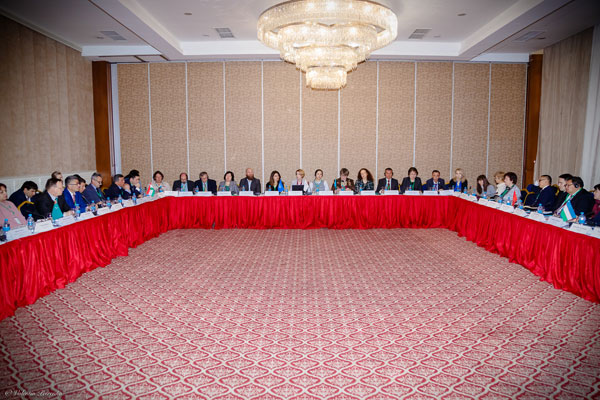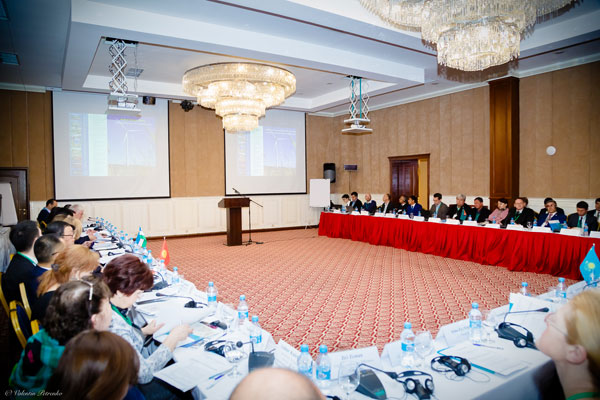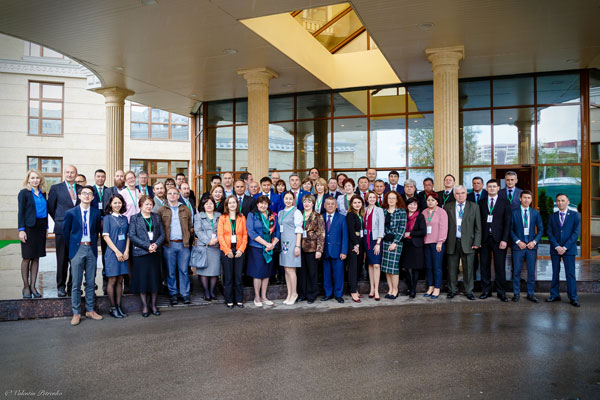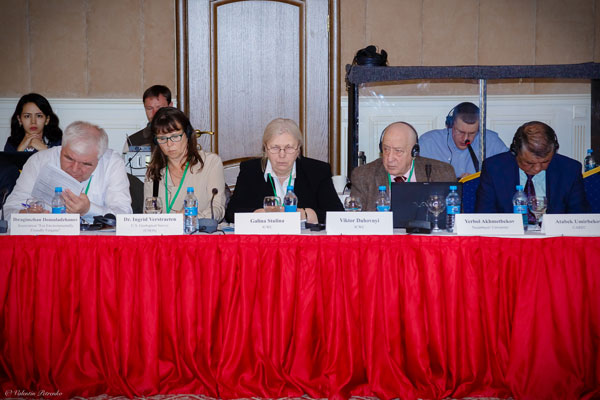REGIONAL WORKSHOP ON CLIMATE CHANGE IN CENTRAL ASIA UNDER THE CAMP4ASB PROJECT
April 17-18, 2017, Almaty
Organizers: Regional Environmental Center for Central Asia (CAREC), World Bank, USAID, and International Fund for the Aral Sea Saving.


The international consultants from ABT Associates hired by USAID presented information on the latest and notable developments in global policy in the context of the Paris Agreement and the opportunities that the associated mechanisms open for the Central Asian countries.
By present, 82% of countries all over the world have signed the Paris Agreement and committed themselves to keep temperature growth at no more than 2į—. USA, Canada, Mexico, and Germany have mostly contributed to the Green Climate Fund Program. Some of them have committed themselves to reduce carbon emissions as much as 5 times.
It should be mentioned (according to the report of the University of Central Asia) that many uncertainties remain with respect to climate change:
- effect of changing temperatures on water;
- dependence of microclimate, particularly in mountains, on climate change;
- imperfect modeling and global scenarios; and,
- specific characters of climate change not addressed in detailed scenarios.
Although all Central Asian countries have signed the Paris Agreement, and Tajikistan and Turkmenistan even ratified it, the National Climate Change Adaptation Plan (NCCAP) was not adopted by any of them; although they have studied this issue. These activities are mostly undertaken at the sectoral levels depending on sector development strategies and sectoral risks in the context of climate change. The most important thing the countries should pay attention to is a strategic approach to national development. The countries that successfully elaborated NCCAPs are Brazil, Burkina-Faso, Cameroon, Sri Lanka, and Palestine.
What is important is that elaboration of NCCAP does not require any precise format and sample. The country itself may determine these formats and samples.
The consultants presented experience of Peru, Rwanda, and Jamaica. These countries have hired consultants from various expert universities. For instance, for Rwanda the Oxford University assisted in the development of the program until 2050; more than 350 consultations were organized, and various experts from the government, leading sectors, and local communities were involved. According to the consultants, the mandatory points of NCCAP preparation process are the interactive analysis and collection of materials for the Plan, clearly defined aims, analysis of implemented actions on adaptation to climate change, identification of development priorities and assessment of communications and connections. Of importance is that the government coordinated the involvement of governmental and nongovernmental organizations.

In the course of the workshop, national teams shaped their attitude to and assessment of activities on preparation to climate change adaptation.
Representatives from Kazakhstan, Kyrgyz Republic, Tajikistan, Turkmenistan, and Uzbekistan reported on implemented activities on adaptation to climate change and commitments undertaken before UNCCFC and their fulfillment. According to the reports, Turkmenistan and Tajikistan were successful in this respect. Here the actions are focused on search for sustainable financing, organization of public opinion formation workshops, training of government employees, development of NCCAP monitoring policies, examination of unclear areas and elaboration of the program. Tajikistan developed the strategy for NCCAP which should be approved in the nearest time.
Uzbekistan has been working on this issue since 2010 and focuses on a range of principal provisions. According to Natalya Agaltseva, these include cost-benefit analysis, vulnerability assessment related not to the sectors but to the whole National Plan, cost-efficiency of the process, and training of climatologists.
The focus on national approaches to NCCAP, to some extent, shifted the focus on regional approaches, particularly for some sectors. From this point of view, the only exception was the report by Mr. Rama Sharma. He presented the activity of ICARDA in disseminating experience in selecting drought and salt resistant wheat (spring and winter), maize, potato, vegetables, pistachio, mung bean, and other crops. This activity is of regional character as it allows all countries to advance simultaneously in one of the most efficient ways to adapt to climate change.
In the course of the workshop, the needs for knowledge and information on climate change and adaptation were identified by the groups (hydrometeorologists, governmental organizations, research institutes, and NGOs).

The representatives of SIC ICWC (G.V.Stulina, V.A.Dukhovniy) focused on the regional approaches to a number of problems occurring in the assessment of climate change in our region. They presented their vision for 5 regional components of CAMP4ASB: establishment of a regional platform on climate change, monitoring at the regional level, and training. A special attention was paid to the SIC ICWC research results related to potential usage of temperature growth and consequent shortening of plant development phases for possible reduction of water requirements. In her report, Mrs. Stulina mentioned these results produced in the PEER-Amudarya (USAID) and CAWa (MFA of Germany) projects, as well as the need for their practical implementation in the region and for various conditions. It is necessary to develop an extensive network of climate stations for agricultural purposes to collect limited information sets for online management of agricultural and water use processes.
Prof. V.A.Dukhovniy focused on the need for regional approaches to water management, combating desertification, and water saving. The sustainability of the CAWater-Info (www.cawater-info.net) platform portal was demonstrated; it continues building its information capacity, develops analytical and information tools in spite of the termination of donorís support 5 years ago.
Photos provided by CAREC
|